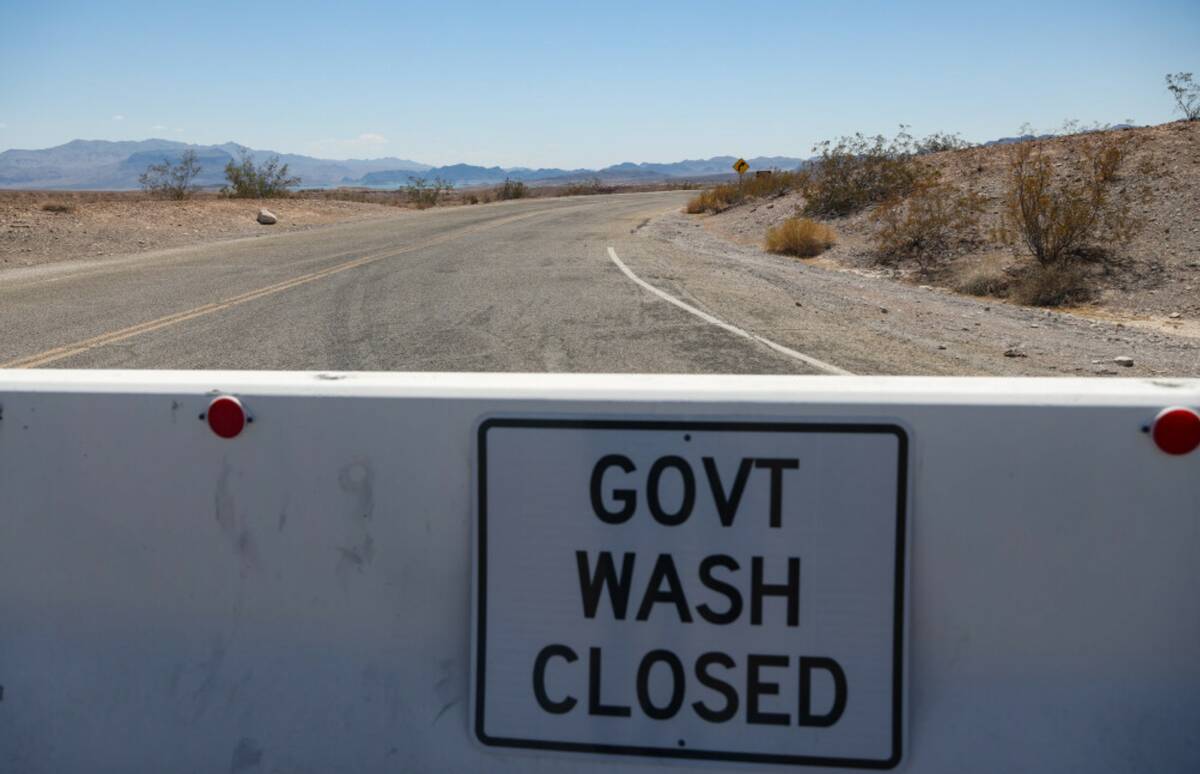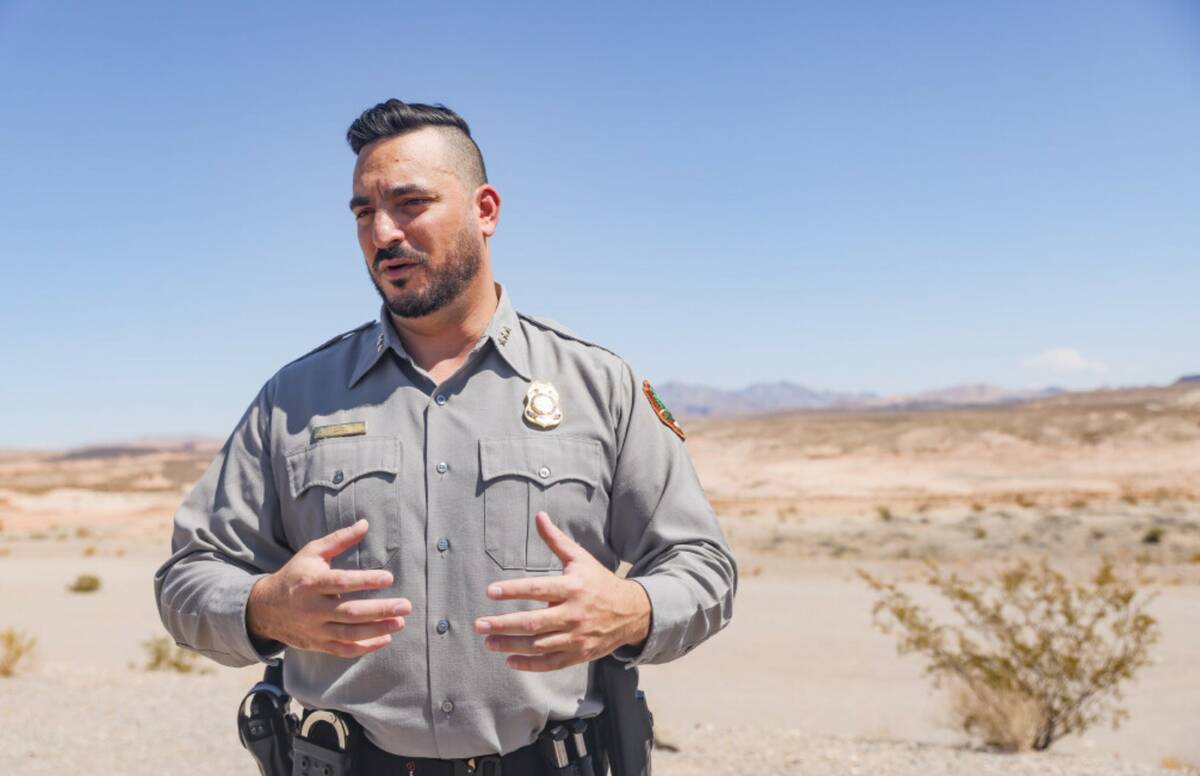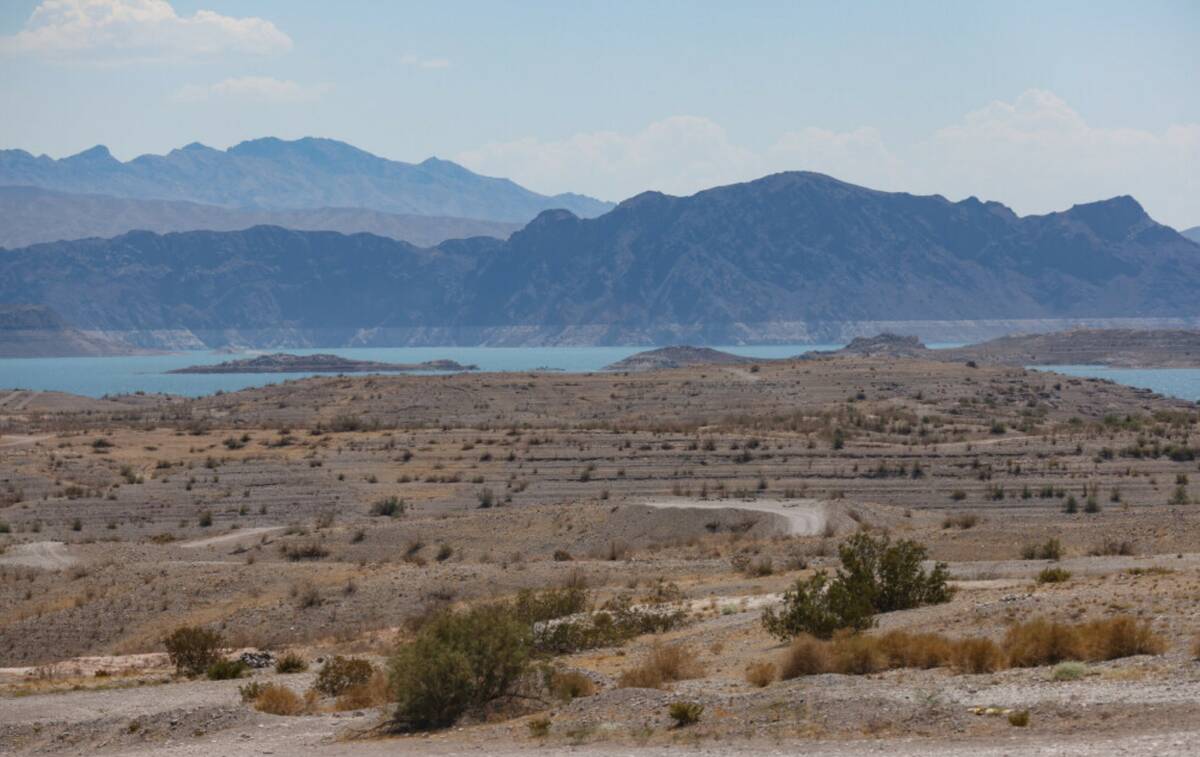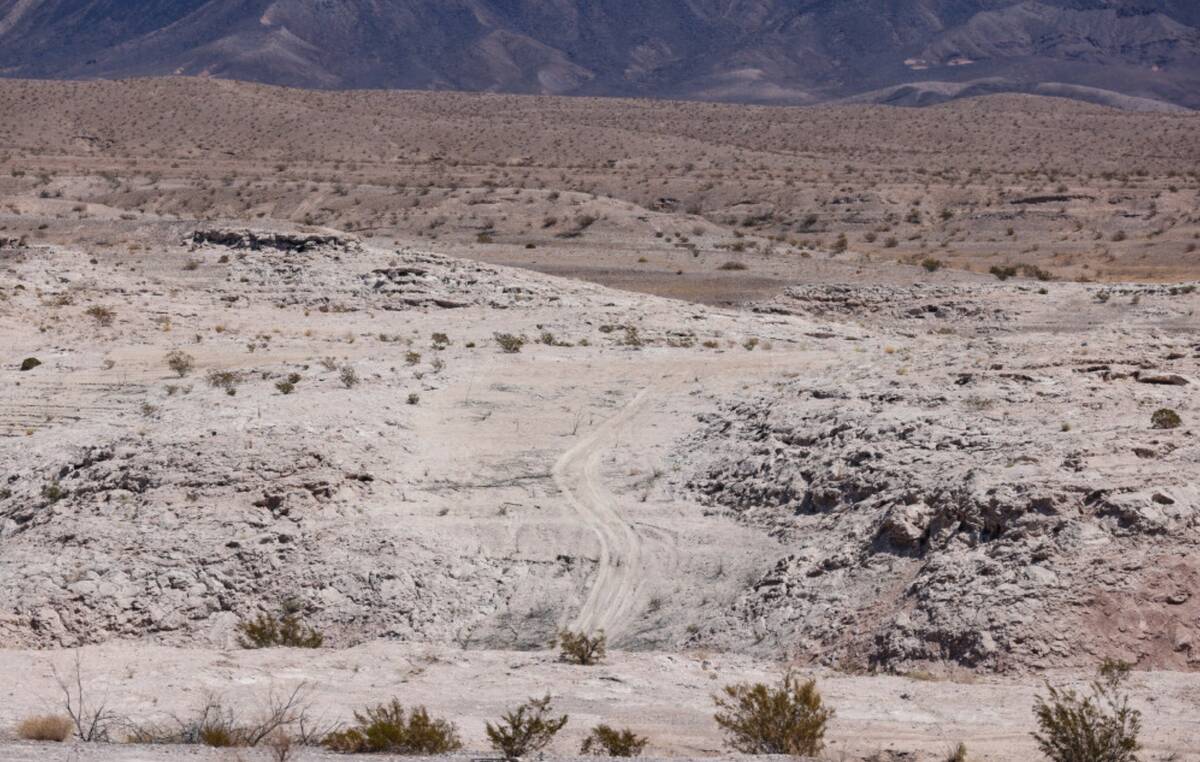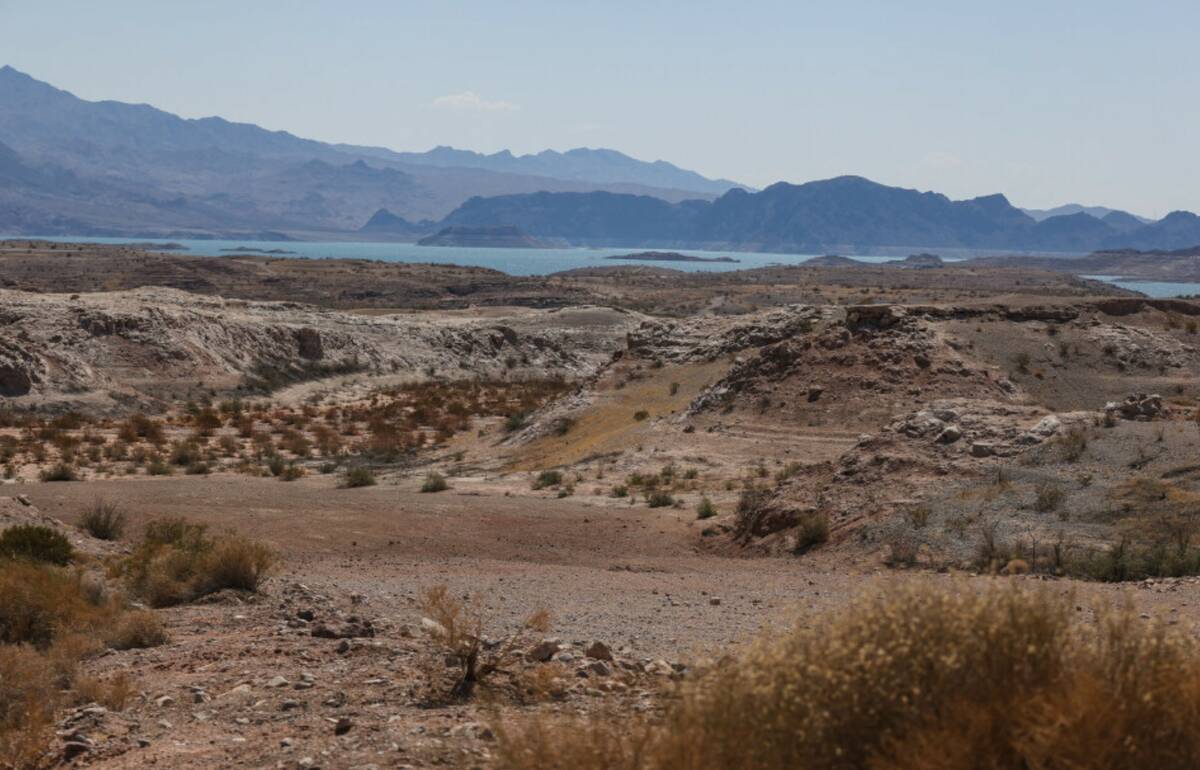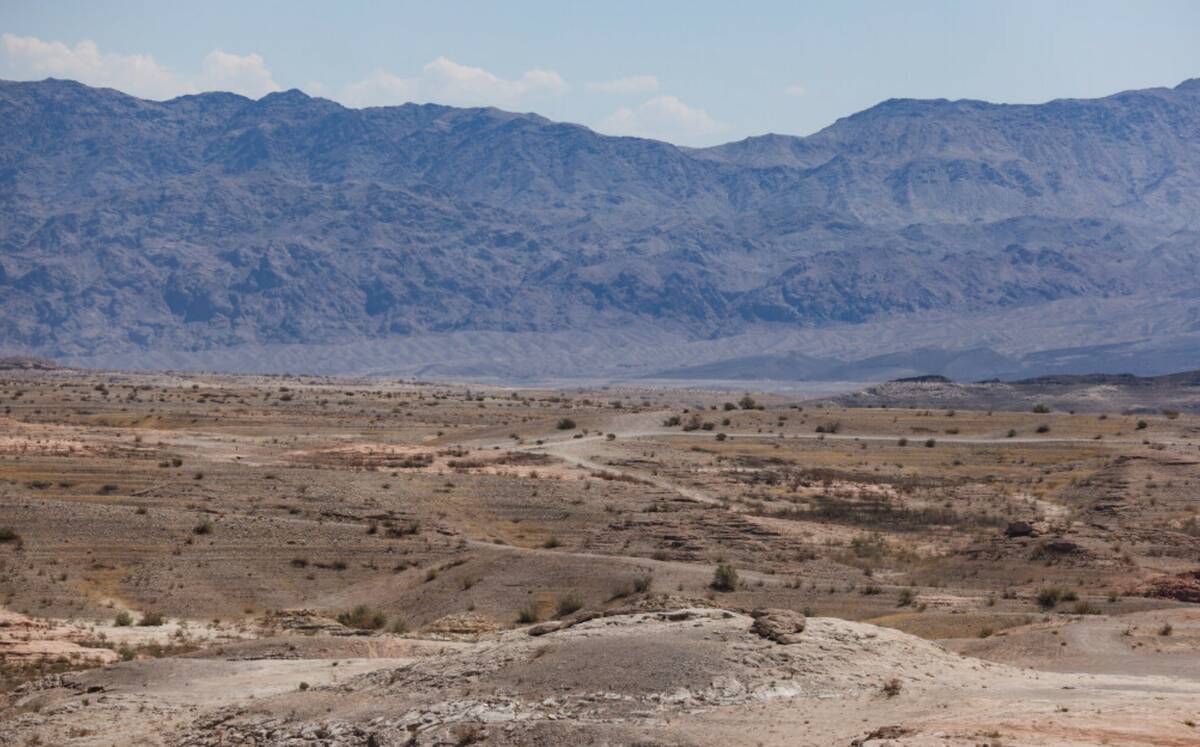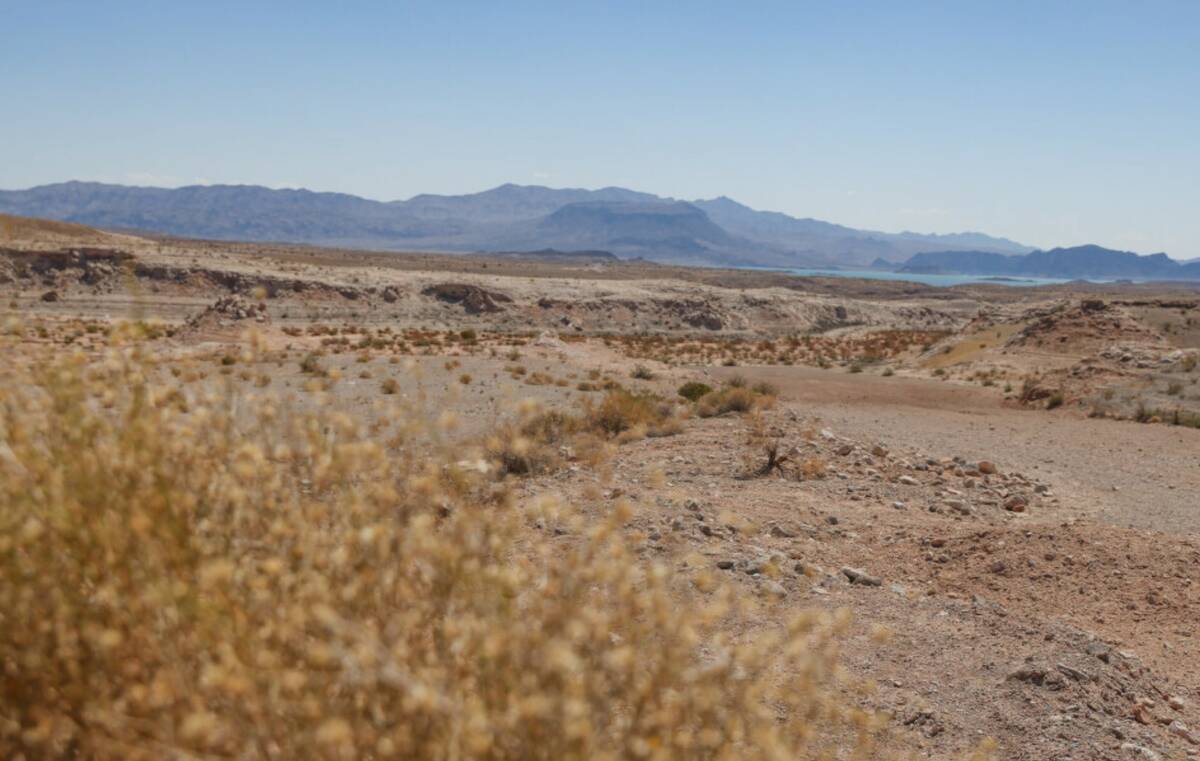Roads to ruin: Why the park service closed a camping site at Lake Mead
After visitors to a popular camping site in Lake Mead National Recreation Area created a “spiderweb” of illegal roads traveling out into the park, the National Park Service made the decision to close the site in July.
“As more and more people continue to drive on those paths, it begins to look like an established roadway,” said Lake Mead National Recreation Area Assistant Chief Ranger Mike Garel, pointing to tracks sprawling across Government Wash. “The desert soil just hardens up.”
In addition to eroding the natural landscape, destroying vegetation and harming ecosystems for wildlife, illegal roads can spread waste, litter and even crime deeper into the park, Garel explained.
The Government Wash camping site closed in July after an “impromptu community” began “living” in the park, leading to damaged natural resources and high rates of crime, Garel said. During peak times of the year, there could be between 300 and 500 visitors staying at Government Wash, he added.
The crowds meant that the area saw high crime rates, with law enforcement responding to more than 500 incidents between January 2022 and February of this year, according to the park’s website. Visitors also created more than 100 miles of illegal roads.
The roads themselves are damaging, but they also serve to spread the park’s ailments into previously inaccessible areas. “I use the term spiderweb,” Garel said. “It was very challenging to manage.”
Damage to the environment
“In desert areas, off-road vehicles can be quite destructive,” said Jeff Ruch, director of the Pacific Regional Office of Public Employees for Environmental Responsibility. “They rip up whatever vegetation is there and make the land uninhabitable for wildlife.”
Ruch called the issue “one of the biggest challenges facing public lands in the West.” He explained that as vehicles drive on non-authorized roads, they erode the soil and pull out critical flora. As the soil continues to erode, it becomes “difficult, if not impossible” to replace the vegetation that has been lost.
Vehicles traveling on illegal roads can also pollute waterways, which, combined with a loss of vegetation, makes it difficult for wildlife in the area to survive, Ruch explained.
“While Lake Mead is a big body of water, I’m sure it is not helped by gasoline and other sediment flowing into the streams where it wouldn’t otherwise,” Ruch said.
Garel said that the park is home to the desert tortoise, which burrows underground. Vehicles driving over tortoise habitat can cause harm to the species’ burrowing sites.
According to Garel, a yellow flower called the Las Vegas Bearpoppy is also being hit hard by the presence of illegal roads in the park. The flower grows in the “harshest and driest soils in the Mojave Desert,” according to the National Park Service’s website, favoring soils with a high gypsum content.
Several illegal roads sprawl through gypsum-rich soil, Garel explained, gesturing towards an area of the Wash containing gypsum deposits.
Problems for law enforcement
As long-term visitors — people who were camping in the park for weeks, or even living there, rangers said — brought crime into the park, incidents occurred at different locations along illegal roads, Garel explained.
“Sometimes we would even have to ask for an aviation resource to come overhead and guide us into where the emergency call was at,” said Garel, who once had to make such a call himself. For a park with one plane, this was a burden on resources.
In addition to one plane, the park has around 26 rangers patrolling an area of 1.5 million acres across two states, according to Garel. “The sizeable call volume in one area of a park makes it difficult for us to respond to the many other conflicting needs we have across the 1.5 million acres,” he said.
Illegal roads help visitors reach remote areas, which Ruch said creates a “persistent law enforcement problem.”
“People who reach these remote areas feel that they have been made exempt from the rules of civilization,” he said.
The park saw a higher rate of violent crimes than normal, Garel said, with one attempted murder being reported.
The future of Government Wash
The park expects to reopen Government Wash in 2025. However, Garel said that it’s not yet known what this reopening will look like.
In order to ensure that illegal roads don’t once again run rampant, the park may consider introducing measures such as restrictions on camping.
Before any decisions are made, rangers, biologists and other volunteers are assessing the damage that’s already been done to the area.
Ruch said that the only way to prevent visitors from traveling on illegal roads is to heavily enforce the matter by policing the “roads” and ticketing passersby.
While some illegal roads are so developed that some visitors may not realize they aren’t authorized by the park, Ruch said that “in many instances, the illegal off-roaders don’t care,” and so education may not help.
The closure is scheduled to be discussed at a Lake Mead quarterly community meeting on September 19. Garel said that the feedback so far from surrounding communities and local tribes has been largely positive in response to the closure.
“What the goal is again with the closure is to just find a way to make it manageable and open it back up to make it a safe and family friendly environment for the many different types of recreational and visitor-use groups that we have come out here,” Garel said.
Contact Estelle Atkinson at eatkinson@reviewjournal.com. Follow @estellelilym on X and @estelleatkinsonreports on Instagram.



